Without the Shedding of Blood - Jesus's Redemption of Mankind
In this part of Chapter 9, Pastor Martin Saine teaches on the contrast between the Old Covenant's sacrificial system and the superior sacrifice of Christ in the New Covenant. He discusses the symbolic nature of the Old Covenant's rituals, emphasizing their inability to cleanse the conscience or bring about true inner transformation.
The concept of redemption is introduced, highlighting the uniqueness of Christ's sacrifice and the eternal redemption it brings. The blood of Christ is contrasted with the temporary purification achieved by the blood of bulls, goats, and the ashes of a red heifer in the Old Covenant. The author argues that Christ's blood, offered without spot to God, cleanses the conscience from dead works and serves the living God.
The term "redemption" is explored, emphasizing its occurrence only three times in the Bible, particularly in Luke 1:68, Luke 2:38, and Hebrews 9:12. The discussion delves into the ritual of the red heifer in Numbers 19, connecting it to Hebrews 9:13.
The role of Christ as the Mediator of the New Covenant is discussed, emphasizing His death for the redemption of transgressions under the first covenant. The retroactive and eternal nature of this redemption is highlighted.
The author explains the necessity of blood in the purification process under the Old Covenant, connecting it to the dedication of the first covenant with blood. The sprinkling of blood on the book, people, and the tabernacle is detailed, drawing parallels to the obedience and sprinkling of the blood of Jesus mentioned in 1 Peter 1:2.
The significance of the blood of the covenant and its commandment by God is explored, linking it to Exodus 24:1-8. The author emphasizes the symbolic nature of the Old Covenant's sprinkling of blood and contrasts it with the powerful reality of Christ's blood in the New Covenant.
Hebrews 9 concludes by discussing the necessity of shedding blood for remission of sins according to the law and the purification of heavenly things with better sacrifices. Christ's entry into the true heavenly sanctuary and His once-for-all sacrifice are highlighted, concluding with the promise of His second coming for salvation. The appointment of men to die once and face judgment is paralleled with Christ's one-time offering to bear the sins of many. The anticipation of Christ's second coming is mentioned, bringing hope for salvation to those who eagerly wait for Him.
-
 45:13
45:13
Hebrews
2 months agoWithout the Shedding of Blood: Jesus's Redemption of Mankind
8 -
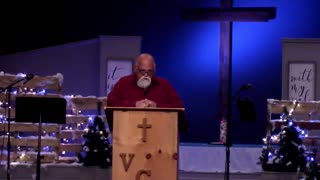 46:52
46:52
Hebrews
3 months agoJesus is the Fulfillment of the New Covenant
12 -
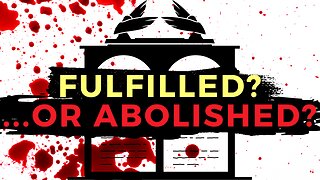 1:55:24
1:55:24
Overcome Babylon
10 months agoBlood Sacrifices / Offerings - What Did Jesus Fulfill, *Exactly*? (Beginning Leviticus)
1.04K -
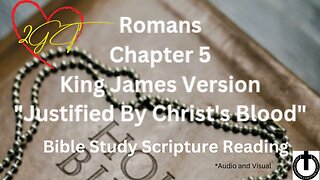 5:20
5:20
GODSTRUTHSTANDS
2 months agoBible Study Romans Chapter 5 Justified by Christ's Blood KJV Scripture Reading #jesus #faith
46 -
 52:15
52:15
joeregis
1 year agoWithout The Shedding of Blood There is No Forgiveness! Jesus Died Once For ALL Sins! - BobGeorge.net
3 -
 10:03
10:03
BlessedBeyondBelief8
1 year agoChrist’s blood obtained Him eternal redemption and secured your eternal inheritance.
77 -
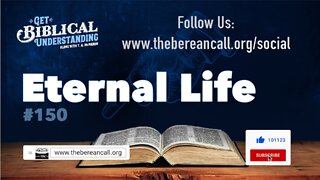 5:07
5:07
thebereancall
1 year agoGet Biblical Understanding #150 - Eternal Life
13 -
 16:24
16:24
WGMChurch
1 year agoChrist's Blood for Eternal Redemption
21 -
 21:38
21:38
Leo Dunson
1 year agoChrist Is Our Sacrifice for Our Sins
27 -
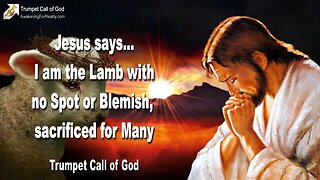 11:57
11:57
Trumpet Call of God
1 year agoJune 26, 2007 🎺 Jesus says... I am the Lamb without Spot or Blemish... Sacrificed for Many
49